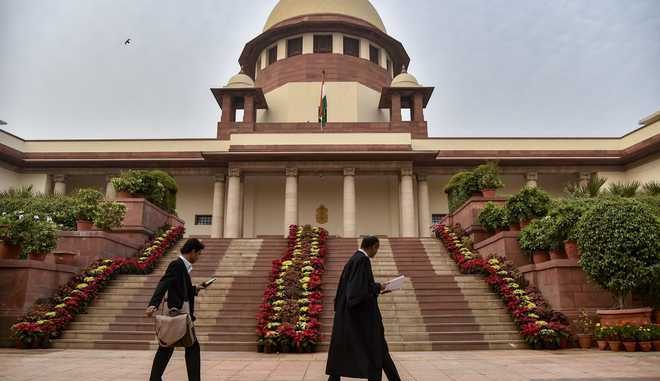
In News
In a case pertaining to the disqualification of an MLA by the Speaker, the Supreme Court has asked the Parliament to amend the Constitution to strip the power of Speaker of Legislative Assembly of disqualifying MLAs under the anti-defection law.
In-Detail
- The court called for setting up an independent tribunal to adjudicate matters pertaining to disqualification of an MLA who has switched sides for money and power.
- This is the second time in as many months that the SC has argued against giving powers to the Speakers to disqualify an MLA.
- In November last year, the SC, in a 109-page judgment held that a speaker who works on the whims and fancies of his political party does not deserve to occupy the chair.
- The court called on the Parliament to strengthen the Tenth Schedule to discourage such undemocratic practices.
- Now, in a 31-page judgment, a three-judge bench questioned why a Speaker, who is a member of a political party and an insider of the house should be the sole and final arbiter in the disqualification of a political defector.
- It urged the Parliament to rethink the power vested with the Speaker as a quasi-judicial authority while being a member of a particular political party.
- It further questioned why the disqualification procedure under the Tenth Schedule (Anti-defection law) has been kept in-house rather than giving to an outside authority.
- The court reasoned that even the final authority to remove a judge is outside the judiciary with the Parliament.
- Therefore, the court suggested that a disqualification petition under the Tenth Schedule be adjudicated outside the Parliament or the Assembly.
- It proposed setting up of independent tribunals headed by a retired Supreme Court judge or a retired High Court Chief Justice.
Tenth Schedule
- Through the 52nd amendment of the Constitution, the tenth schedule was added to the Constitution.
- It lays down the process of disqualifying elected representatives on the ground of defection.
- The presiding officer of the house is vested with deciding the disqualification of the representative if he/she is subject to any of the four grounds mentioned in the Schedule.
- The grounds on which an MLA or an MP can be disqualified are:
1. If the member voluntarily gives up the membership to the political party.
2. Votes or abstains in contrary to the direction of the political party that he/she belongs without obtaining permission from the political party.
3. An independently elected member of the house stated to be disqualified if he/she joins a political party after the election.
4. When a nominated member of the house joins a political party after six months of taking the seat.
- Initially, when the amendment was brought in 1985, the decision of the presiding officer in deeming a member of the house disqualified is final.
- In 1992, the Supreme Court gave judgment against it and brought the decisions of the presiding under judicial review.
Conclusion
Going a step further from the 1992 judgment, the Supreme Court’s reasoning for setting up a tribunal to adjudicate decisions regarding the disqualification of a member of the legislative assembly or member of a Parliament is sound. Let us hope, that the Parliament finds reason in Supreme Court’s argument and sets up independent tribunals.

Leave a Reply
You must be logged in to post a comment.